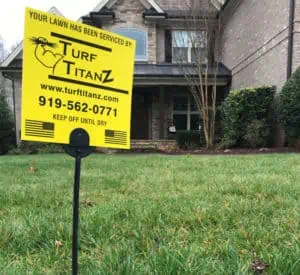All You Need to Know About Soil Testing
Soil testing is an important process in both residential and commercial landscaping and there’s a reason why it’s becoming increasingly more popular. By taking a sample of your soil and sending it to a lab for testing, you can get a detailed report on the nutrients and minerals present in your soil. This information can be used to make informed decisions about how to improve your land’s fertility, increase crop yields, and make everything look healthy and beautiful year round.

Soil Testing: What is it and Why is it Important
Soil testing is the process of taking a sample of soil and sending it to a lab for analysis. The results of the soil test will help you understand all the different levels of nutrients and minerals that are present on your land. You can then leverage that information to make decisions that can potentially change the face of your property once and for all. Soil testing is important because it can help you understand the overall condition of your land, which in turn saves you money on a series of landscaping problems.
The Benefits of Soil Testing
There are many benefits to soil testing, but the most important benefit is that it can help you save money by avoiding any and all unnecessary expenses. By having a detailed report of the nutrients and minerals present in your soil, you can make informed decisions about which fertilizers to use and how much to use. This can save you money by avoiding expensive fertilizers that are not needed and preventing problems with your crops due to poor nutrition.
In addition to saving money, soil testing can also help you improve your land’s fertility and increase crop yields. With the information from a soil test report, you can develop a management plan that will optimize the nutrients for better plant growth. Soil testing is an important tool for anyone who wants to improve their land’s productivity, or of course how it looks. It’s all about first impressions, and soil testing takes care of the basics.
Understanding the Process of Soil Testing
Taking a soil sample is the first step in the process of soil testing. It is important to take a representative sample of your soil so that the results of the test will be accurate. The best way to do this is to take multiple samples from different areas of your land and mix them together. Once you have a representative sample, you will need to send it to a lab for analysis.
When you send your soil sample to a lab, they will use a process called extraction to remove the nutrients from the soil. After the nutrients have been extracted, they will be analyzed and compared to known standards. The results of the analysis will be used to generate a report that will show you the levels of nutrients and minerals present in your soil.
Using the Right Tools
When it comes to collecting your soil sample, there are a few tools you will need: a shovel, a spade, and a garden trowel. With these tools, simply dig up some of the topsoil from the area you wish to test. Be careful not to go too deep – you only need a few inches of soil. Once you have collected your sample, place it in a clean container and label it with the location.
There are a few things to keep in mind when collecting your sample. First, avoid areas that may be contaminated, such as near garbage cans or chemical storage areas. Second, take care not to disturb the roots of plants when digging – this can damage the plant. Finally, if you are collecting multiple samples from different areas, be sure to label each one clearly so you can keep track of where they came from.
What to do With the Results
Once you receive your soil test results, you will need to interpret them so you can make decisions about how to improve your land. Consult a landscaping professional in order to offer you customized solutions that fit your unique needs and circumstances.
Start by identifying the problem areas. If there are certain nutrients that are low, you may need to add fertilizers to these areas. On the other hand, if there are certain nutrients that are high, you may need to take steps to reduce their levels. Once you have identified the problem areas, you can develop a management plan to address them.
Your soil test results will also show you the pH of your soil. For most plants, a pH between 5.5 and 7 is ideal. Depending on the plants you are growing, you will need to adjust the pH so that it is within range.
Tips for Keeping Your Soil Healthy
Plants grown in healthy soil are typically more resilient and better able to withstand pests and disease. There are a few things you can do to keep your soil healthy:
- Use organic matter: By adding organic matter to your soil, you are improving its ability to hold water and nutrients, as well as increasing its ability to support plant growth. You can find organic matter in a number of everyday products, such as coffee grounds, eggshells, and even human hair.
- Avoid compaction: Compacted soil is difficult for roots to penetrate, which can lead to poor plant growth. To avoid compaction, be careful not to walk on wet soil and avoid driving over your land with heavy machinery.
- Test your soil regularly: By testing your soil on a regular basis, you can stay ahead of any problems that may arise. This will allow you to make changes to your management plan so that you can keep your soil healthy and productive.
- Reducing chemicals: One way to keep your soil healthy is to reduce the number of chemicals you use. Chemicals can pollute the soil and water, and they can also be harmful to plants and animals. If you need to use chemicals, try to find products that are certified as being safe for the environment. You can also look for natural alternatives to chemicals, such as using compost or mulch.
For Top-Tier Soil Testing Solutions Get in Touch With Our Team
Soil testing is an important part of the gardening and landscaping process. By understanding what your soil needs you can create a healthy environment for your plants to grow. If you have questions about our services or want to know regarding how to keep your soil healthy, please don’t hesitate to contact us at (919) 562-0771 and our team of experts would be happy to help!
